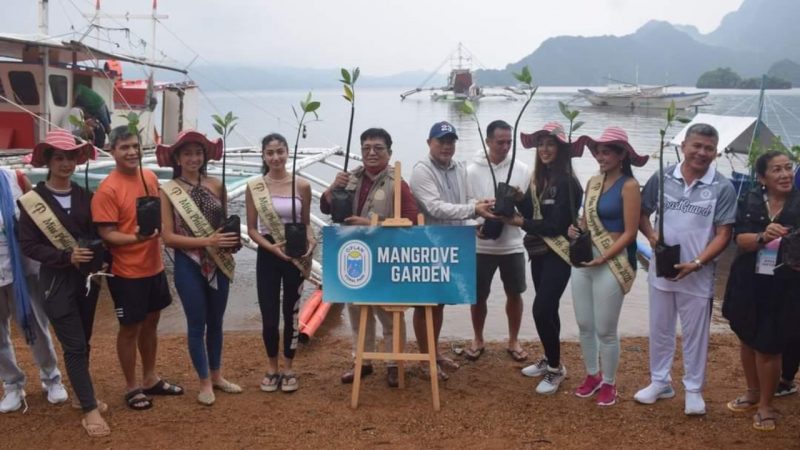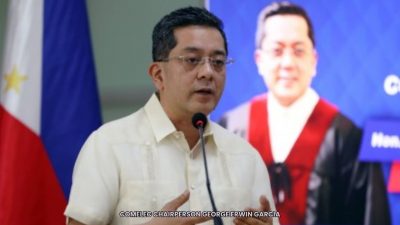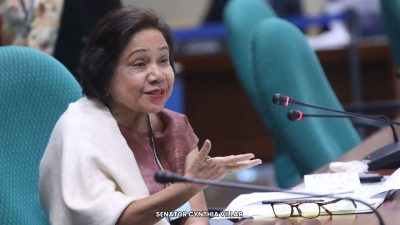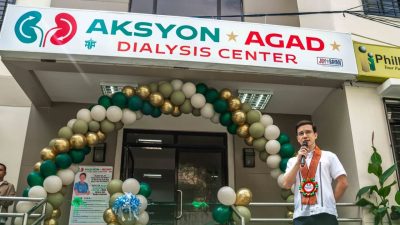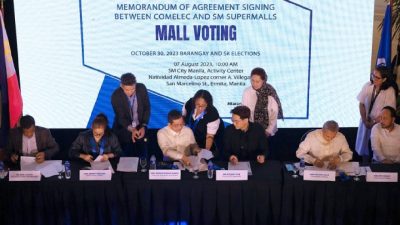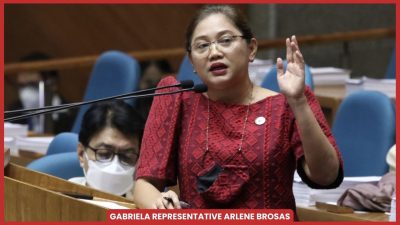File photo of Commissioner Albert Dela Cruz with Miss Earth candidates during a mangrove reforestation activity in Puerto Prinsesa, Palawan. (Photo supplied)
MALACAÑAN PALACE, Manila — As the effects of climate change are already making an impact worldwide, Climate Change Commissioner Albert Dela Cruz Sr. expressed his enthusiasm for a more comprehensive approaching Thursday.
He emphasized that in addition to taking measures to reduce greenhouse gas (GHG) emissions and slow global warming, it’s essential for Filipinos to develop the ability to adapt to climate-related challenges.
This adaptation is crucial to safeguard both individuals and communities.
The Commissioner added that the consequences of climate change differ depending on the geographical location within the country. Some areas might face issues like fires, floods, droughts, increased temperatures, or rising sea levels.
Nevertheless, the climate official cautioned that merely decreasing carbon emissions is no longer sufficient to mitigate the effects of climate change. It’s now becoming evident that preparing for rising global temperatures is equally vital.
“This underscores the necessity of extending technical assistance to local government units (LGUs) to enhance their climate resilience through adaptation to climate risks. There are numerous strategies to adjust to the ongoing and projected impacts of climate change. Individuals can adopt straightforward measures, such as planting and conserving trees to maintain cooler temperatures. Clearing brush can also help reduce the risk of fires,” he said.
For businesses and offices, Dela Cruz recommended considering and planning for potential climate risks. For instance, preparing for hot days that might hinder outdoor tasks for workers.
“It’s important for everyone to recognize the elevated potential for natural disasters in their work or residential areas and to be aware of available resources in case of such events,” he added, while pointing out that many solutions to climate change can be found in nature.
“As an example of nature-based solutions, communities can enhance safety by constructing flood barriers and rehabilitating mangrove forests. These measures protect against sea-level rise, provide sustenance for communities, and create a habitat for various species. Beyond mangrove restoration, rejuvenating vegetation around lakes and rivers can shield shoreline communities, while simultaneously supporting a recognized pathway for migratory birds,” he elaborated.
The climate official also highlighted that although nature-based solutions might seem more applicable to rural areas, urban centers are also enhancing resilience by incorporating natural elements.
“Several of our urban hubs, including Davao City and Metro Cebu, can transition into what we call ‘Green Cities’ by revitalizing nearby forests to mitigate landslides and floods. They can also enhance drainage systems to replicate natural streams and rivers,” he emphasized.
Furthermore, Dela Cruz emphasized the significance of LGUs initiating a shift towards sustainability. This involves transitioning from conventional sanitary landfills to utilizing waste-to-energy (WtE) technologies. Such a transition can curtail GHG emissions and support proper waste disposal by minimizing single-use plastics consumption. (ai/mnm)

